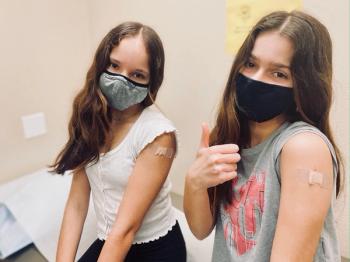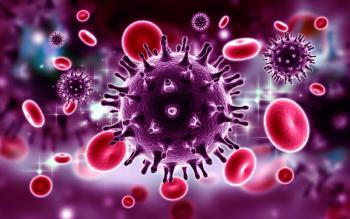
In the 18th century, Franz Friedrich Anton Mesmer introduced the healing power of animal magnetism to Europe.

In the 18th century, Franz Friedrich Anton Mesmer introduced the healing power of animal magnetism to Europe.

Pharmacy Times spoke with Tomas Villanueva, DO, MBA, FACPE, SFHM, practicing health care provider, and associate vice president for clinical resources at Vizient, about specific initiatives for health systems and how to help mitigate vaccine hesitancy.

How should pharmacists help these patients?

Rimegepant is indicated for adult patients with episodic migraines.

Adverse effects from intravenous immunoglobulin tend to be mild, but moderate and severe adverse effects have been observed.

Lynlee Burton, head of the Center for Vaccines and Emerging Infectious Diseases at PRA Health Sciences, discusses the significance of short vaccine development timelines on the future development of COVID-19 vaccines.

Jay Lieberman, MD, a pediatric infectious disease specialist and the senior medical director of PRA Health Sciences, discusses his decision to enroll his twin daughters in the Moderna COVID-19 vaccine trial.

Susan Lang, CEO of XIL Health and former senior executive at Express Scripts, discusses the impact of declining reimbursements on pharmacies that were already hard hit by the COVID-19 pandemic.

A recent article from the American Cancer Society reports a mixed picture, with historic lows in smoking prevalence but suboptimal obesity, cancer screening, and HPV vaccination levels.

The legislation would require that patients with cancer have access to oral oncology drugs within 72 hours of having the prescription submitted to the patient’s pharmacy benefits manager.

Patients who added dupilumab to standard of care saw a 65% reduction in the rate of severe asthma attacks over 1 year.

Pharmacists should counsel patients periodically to ensure correct usage for better disease and treatment management.

The researchers analyzed immunization records for more than 300,000 Texas children from birth to 24 months.

David Silverstein, JD, MS, a partner in Axinn’s Intellectual Property Practice Group and FDA practice groups, discusses the challenges posed by the White House’s support for the proposal to the WTO to waive IP protections for COVID-19 vaccines.


Incidence rates of early-onset colorectal cancer in the United States have increased from 8.6 to 13.1 per 100,000 between 1992 and 2013, with most of this increase attributable to early-onset cancers of the rectum.

Jay Lieberman, MD, a pediatric infectious disease specialist and the senior medical director of PRA Health Sciences, on the future of COVID-19 disease and vaccines for adolescents and children.

During a recent roundtable discussion, industry leaders shared frontline insights on the biggest drug diversion challenges.

Other HPV-associated cancers were found to have increased over the study period, linking this trend to lack of guidelines and other resources.

Inhibiting Toll-like receptor 4 stopped it from accumulating cisplatin, thereby halting the hearing damage caused by the cancer treatment.

The researchers are hopeful this could eventually lead to the elimination of long-term antiretroviral treatment as a lifelong necessity for patients with HIV.

Selinexor in combination with bortezomib and dexamethasone is used for adult patients with multiple myeloma who have received at least 1 prior therapy.

most women reported 1 or more episodes of weight cycling, and each additional weight cycling episode was related to shorter sleep duration and poorer sleep quality.

Both strains of Influenza A for the northern hemisphere vaccines will be different from those included last season.

The goal of this year’s competition was to propose a technology-driven solution to address pandemics, mental health, or social determinants of health (SDOH).

New research results show that over the next decade COVID-19 may be more like the common cold.

As more companies enter this space, expect competition to further lower prices while improving quality.

A single pharmacy manager can be opportunistic enough to incorporate new technologies and build relationships that can serve to impact revenue reimbursement schema.


David Silverstein, JD, MS, a partner in Axinn’s Intellectual Property Practice Group and FDA practice groups, discusses the implications of the White House support for the proposal presented to the WTO to waive IP protections for COVID-19 vaccines.